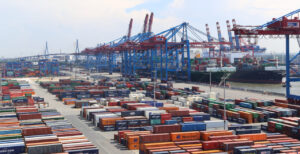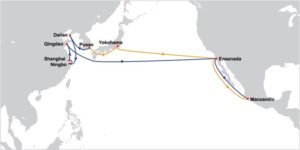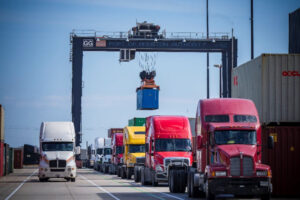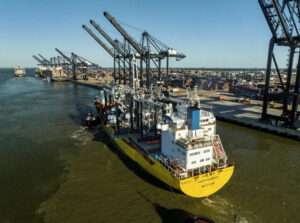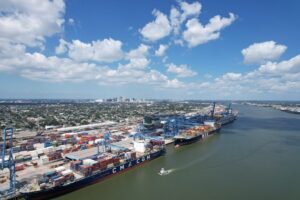The International Port Community Systems Association (IPCSA) said it is looking forward to sharing its experience and expertise as a new member of the World Customs Organization’s influential Private Sector Consultative Group (PSCG).
The Association announced it would join the PSCG on 26 July.
“Our members around the world, including Port Community System, Cargo Community System and Single Window operators, work at the sharp end of trade facilitation and are experts in the flow of information and cargo cross-border and throughout the supply chain,” said Richard Morton, secretary general of IPCSA.
“As such, our members and IPCSA’s secretariat work closely with Customs administrations and experts, and we have vast practical experience to share.”
Customs administrations around the world need strong, productive and healthy businesses in order to increase the efficiency of trade and logistic processes, said Ricardo Treviño, deputy secretary general of the World Customs Organization.
“We need a robust communication mechanism and closer collaboration with our main stakeholders, especially the port communities, as they are essential partners for Customs. In this regard, we look forward to the fruitful participation of IPCSA in the WCO PSCG,” he said.
The WCO already has close collaboration with port communities and their stakeholders, he emphasised. “However, it is important to keep broadening our scope and we expect IPCSA to contribute to the discussions with a different perspective, to strengthen the coordination between Customs administrations and ports.”
The WCO is currently honing its strategic plan; the current plan, for 2019-22, was drafted before the Covid-19 pandemic and has been adapted accordingly.
“There are several topics that that were already discussed by Customs before the pandemic – for example, the increase in e-commerce transactions, the need for widespread digitalisation and the use of advanced technologies,” Treviño said.
“With the pandemic, there has been a surge in e-commerce activities and it is clear now that Customs needs quality data and capabilities to analyse these data to advise governments and further promote digitalisation.
“There is also an increasing need to take on board the environmental perspective of our processes, with a range of issues being studied and analysed to be incorporated as priorities in the new strategy.”
The WCO aims to ‘keep its feet on the ground’ through constant communication with other stakeholders, he added.
Richard Morton said: “Both IPCSA and the WCO have many common goals and objectives, including trade facilitation, security of data, people and cargoes, and ensuring fair and transparent revenue collection. As an association, and representing its members, IPCSA has a reputation for its willingness to share experience and for working in collaboration in the cause of trade facilitation and the drive for smooth supply chains and cross-border trade.”
Uwe Liebschner, customs and foreign trade consultant at dbh in Bremen, and chairman of IPCSA’s customs committee, said: “Port Community System, Cargo Community System and Single Window operators work closely with Customs administrations around the world.
“IPCSA’s members see how things work on the ground – and are keen to work with all stakeholders to smooth the flow of electronic information, based on the ‘trusted, neutral third party’ model of Port Community Systems. We look forward to supporting the work of the WCO through the PSCG. IPCSA always takes a proactive, supportive approach; we will bring practical experience and constructive suggestions to the group’s discussions.”


